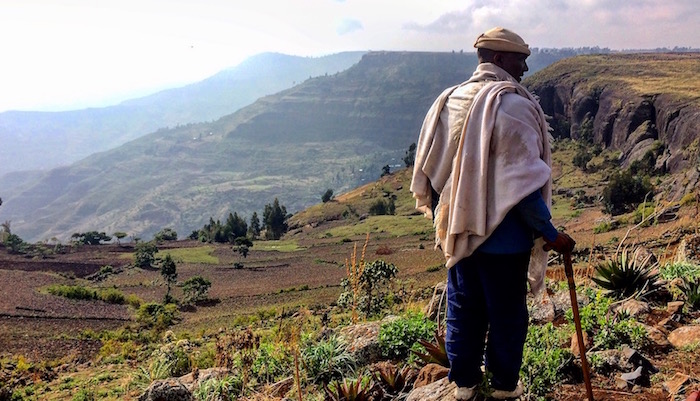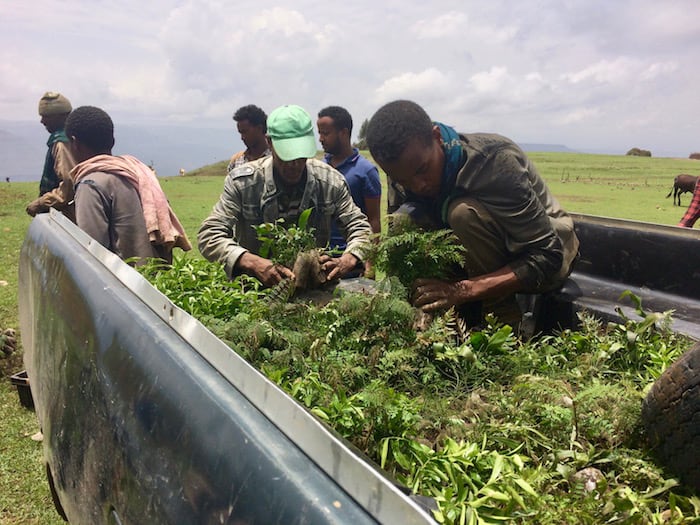For decades, organizations, governments, donors and businesses have struggled to understand their impact. Some have labored over what to measure, or collected too much, too little – or even inaccurate data. Others have have had trouble using the data they’ve gathered, or simply avoided the process altogether.
WDI’s Performance Measurement Initiative (PMI) designs and implements customized assessment solutions so organizations, nonprofits, businesses and other enterprises operating in low- and middle- income countries can better understand their economic, social and environmental performance and outcomes.
The PMI team collects data and expertly uses it to improve the effectiveness, scalability and sustainability of ventures. The team goes well beyond simple output-level (or economic) indicators and also assesses multidimensional outcomes such as changes in physical and/or psychological health, knowledge, self-esteem, aspirations, empowerment, interactions, social networks, home and/or local environment in addition to financial indicators such as income.
They do this by developing robust research designs, as well as quantitative and qualitative questionnaires and surveys that measure these indicators. PMI also carefully adapts its questions and data collection methods to the local context to ensure accurate and valuable data is collected.
The team has worked all over the world, from Asia and Africa to Latin America, and with a variety of partners, including those from the private, non-profit and government sectors. Their projects span a variety of areas, such as agribusiness, healthcare, information technology, renewable energy, housing, sanitation, impact sourcing and economic growth.
PMI also conducts research on how to strengthen monitoring, evaluation, research and learning systems, especially within the complex systems in which development occurs. And it leverages the expertise across different disciplines at the University of Michigan and collaborates with faculty who have developed unique tools and frameworks, and have a wealth of measurement experience.
Learn more about PMI and its work in this video.
WDI today unveiled a new book for its 25th anniversary that commemorates the Institute’s history, leaders, partners and inspiring work around the world.
 The book, “A Force for Economic and Social Freedom,” recounts the Institute’s founding and the dynamic life of its founder, Bill Davidson. The book also looks at the four people who have led WDI during its 25 years, and how each shaped the Institute in their own unique way.
The book, “A Force for Economic and Social Freedom,” recounts the Institute’s founding and the dynamic life of its founder, Bill Davidson. The book also looks at the four people who have led WDI during its 25 years, and how each shaped the Institute in their own unique way.
Four of WDI’s initiatives – Education, Healthcare, Performance Measurement and Scaling Impact – are profiled, including the goals of each and examples of some of their successful work.
The book also reflects on WDI’s 25-year engagement with the University of Michigan community – its faculty and students. Some of the Institute’s many collaborations with U-M faculty are featured, as are the numerous global internships and MBA student teams that WDI has sponsored over the years. The uplifting stories of several past WDI interns and how the opportunity to work abroad changed their lives, also can be found in the book.
The WDI Global Impact Speaker Series is discussed in the book, as well as two specialty areas of the Institute – case publisher WDI Publishing and the news and analysis site NextBillion.
The book concludes with a look to the future, and what the next 25 years and beyond hold for WDI.
The Institute received design and editorial assistance for the book from Michigan Creative, U-M’s in-house agency. Click here to download an electronic version of the book.
WDI’s Performance Measurement Initiative (PMI) specializes in:
PMI’s extensive portfolio of projects includes work with private sector, non-profit, and government partners and has taken place across many regions and industries. For more information on PMI, please see the PMI Capability Statement below.

An Ethiopian farmer. (Images by Julia Entwistle).
Note: Julia Entwistle is a graduate student at the University of Michigan’s School for Environment and Sustainability, and this past summer was one of six WDI Global Impact interns placed with businesses and nonprofits around the world. Entwistle worked with the leadership at ADHENO, a non-profit focused on extreme poverty in Ethiopia. Her assignment involved conducting an impact evaluation of ADHENO’s environmental restoration and economic empowerment programs in the Northern Shewa province of Ethiopia. The organization sought the evaluation before rolling out its programs to additional rural sub-districts in Ethiopia. Entwistle worked with WDI’s Performance Measurement Initiative to develop a survey she implemented during her internship.
In the following article, originally published on NextBillion.net – an affiliated media site of WDI – Entwistle chronicles her specific work with ADHENO as well as explaining how profit-based solutions to environmental stewardship can be implemented.
By Julia Entwistle
Managing the economic interests of farmers and the environment is never an easy balance, regardless of where you are in the world. But perhaps nowhere is finding that equilibrium more difficult than Ethiopia. The UN Food and Agriculture Organization notes that about 12 million smallholder farming households account for an estimated 95 percent of agricultural production and 85 percent of all employment in the East African country, which has a total population of more than 100 million.
As a Global Impact intern at the William Davidson Institute (WDI), I spent the summer working with an Ethiopian nonprofit organization. ADHENO (which translates to Integrated Rural Development Association) implements environmental restoration and economic empowerment programs in the North Shewa region. . ADHENO’s work includes training for smallholder farmers on environmentally sustainable management practices such as terracing, use of improved seeds, water run off mitigation and intercropping. Much of ADHENO’s environmental restoration work is aimed at reducing the rate of erosion. Loss of soil matter and nutrients due to heavy rains and steep slopes in the region is a major concern for farmers. Another key program that ADHENO operates is called tree gudifecha. Gudifecha, meaning adoption in Amharic, is an afforestation program where farmers are paid to adopt and care for trees.
These Ethiopian farmers are not exempt from the underlying conflict that challenges most sustainability efforts, balancing the well-being of the environment with economic interests. The farmers are increasingly turning to chemical pesticides and herbicides to maintain crop yields on their increasingly degraded soils. This reliance on synthetic additives only digs these farmers into a bleaker situation as money is spent on the herbicides, which further degrade the soil. Additionally, these chemical additives have another unintended consequence that further jeopardizes the ecosystem as well as crop yields, killing the bees that are needed to pollinate the crops. In Ethiopia, use of herbicides as well as loss of habitat are causing a reduction in the local pollinator population, not unlike the global trend of pollinator decline that is threatening food security around the world. Fewer bees mean decreased crop productivity with yields cut by 12 percent to 36 percent for various crops, according to an FAO report in 2006.
Although ADHENO discourages the use of chemical herbicides, the organization has put forth an effort to restore the pollinator population by appealing to economic incentives. Indigenous species such as acacia and cordia trees are prime pollinator habitat, but provide little utility in terms of a return for a farmer. Alternatively, much of the rural populace can turn a profit from growing eucalyptus trees, which are harvested for use in construction. Although valuable, the eucalyptus tree is native to Australia and therefore does not support native pollinators. As part of ADHENO’s tree adoption program, farmers are paid a small amount of money to plant and care for trees. Of course, eucalyptus is the most desired tree for planting, but for every eucalyptus seedling that ADHENO provides, the farmers must also care for an indigenous tree to serve as bee forage. Through this strategy over 1 million trees have been adopted since the program’s inception in 2008.

At an ADHENO tree nursery.
In addition to restoring pollinator habitat, ADHENO also encourages the adoption of bee hives as both a way to bolster the pollinator population and create an additional source of income for farmers. Through outside funding sources, ADHENO helped establish a honey cooperative. Initial funds supported the construction of a honey processing plant, covered registration fees and provided for training on how to safely harvest, process and package honey. Since the initial donation of startup funds, the co-op has been self-sustaining and functions like any other cooperative. The farmers sell their honey to the co-op, and the co-op sells the honey at a fixed price. The farmers then receive the profits from their honey sales, which are divided proportionally among the members based on how much honey they contributed. This organization provides a platform for the farmers to profit in a more organized and sustainable way.
The co-op also allows the farmers to package their product and access a wider market than they would otherwise be able to. A downside to this business strategy is that since the co-op sells honey at a fixed price, the profits received by the farmers are not responsive to fluctuations in the market price of honey. For this reason, the co-op forbids private sales for its members, in other words, to be a member of the co-op, farmers have to agree to sell all of their honey to the co-op, even if the market price is higher than the co-op’s fixed price. On the other hand this model guarantees some income for the farmers even if the market price for honey is below the fixed price.
It is also a goal of the co-op to encourage farmers to take up beekeeping. Senior co-op members conduct trainings with new and prospective members on keeping bees and harvesting honey. The co-op currently has more than 400 members.
My work with ADHENO is conducting an impact evaluation to determine what effect ADHENO’s programs, including beekeeping, farmer training and tree plantings, are having on the livelihoods of rural farmers. Along with other students from the University of Michigan’s School for Environment and Sustainability, we are evaluating both the ecological and economic impact of these programs. While our analysis of the data collected this summer is ongoing and we hope to have a final report of the results by the end of the year, we do know that ADHENO has certainly demonstrated innovative ways to advance the needs of farmers and the environment.
Meanwhile, ADHENO is planning to expand its programs to several additional rural communities in the North Shewa region and hope to use our evaluation to guide its growth for maximum impact.
The Social Capital Protocol aims to mainstream the measurement of social capital impacts for business such that it becomes a core part of business decision-making . The World Business Council for Sustainable Development (WBCSD) defines ‘social capital’ as the resources and relationships provided by people and society. Thus social capital includes:
The Protocol provides guidance for companies to measure, value and better manage their social capital. The first version of the Protocol is the result of two years of collaborative development involving input from over 50 WBCSD member companies, four WBCSD Global Network partners, and an Advisory Group of 20 expert partners– including Heather Esper PMI Sr. Program Manager.
For more information related to this burgeoning work, see the article below: